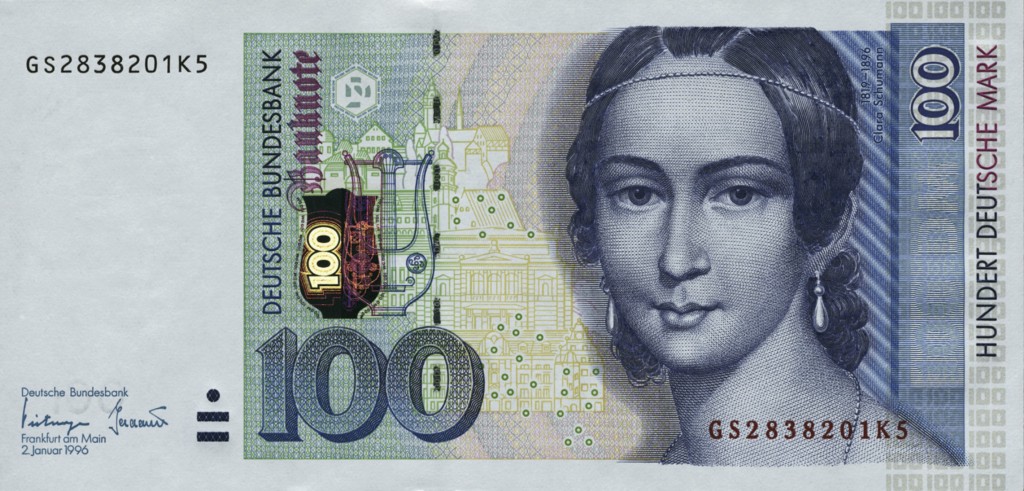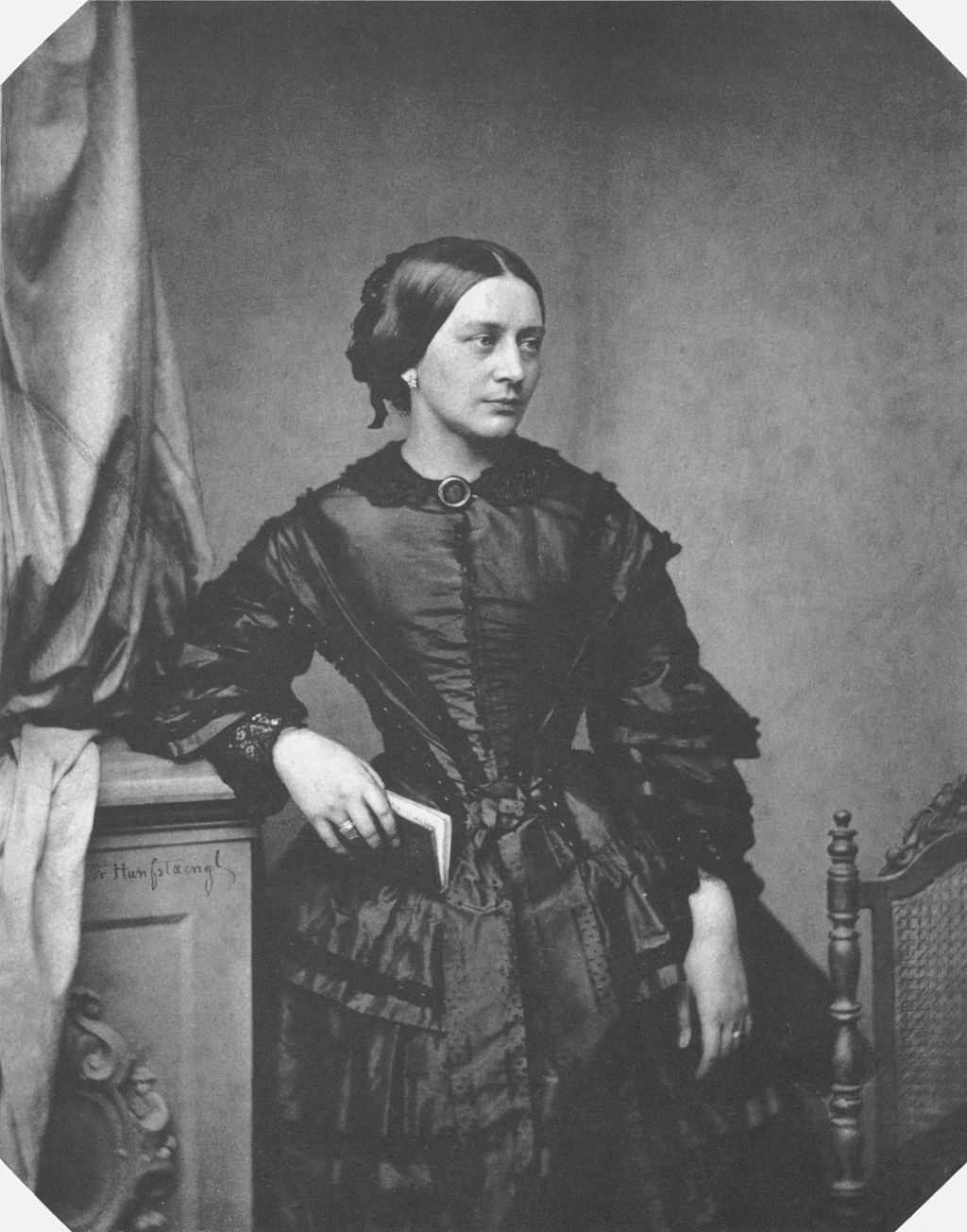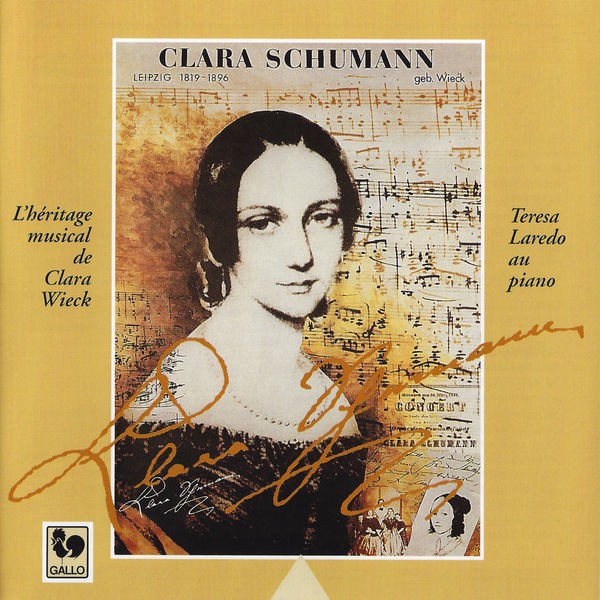I Read A Book About Brahms And All I Got Was This Obsession With Clara Schumann

The main thing to know about me right now is that I am neck-deep in this Brahms biography. I am on a Brahms train, baby, and the next stop is 500 more pages of Brahms. And while every single fiber of my being is screaming, “write about Brahms this week,” I also know that I’m going to be tempted to write about him for the next month. So in the meantime, I want to write about one of his closest friends and maybe maybe maybe the love of his life, as well as the first female composer for this column: Clara Schumann.
Schumann (née Wieck) was born to be a famous pianist, namely because her father decided at a very young age that that’s what his daughter was going to become. He had her learning piano when she was a toddler, and even before she was 10, Clara was recognized as one of the most promising musicians of the mid-19th century. When she was 11, she met Robert Schumann, who was 9 years older than her, who dropped everything to move into her house and teach her piano and one day marry her. Nice. Nice nice nice. Extremely normal and good thing from the past.
The Schumanns are often recognized as a power couple of the time — your Beyoncé and Jay-Z, your William H. Macy and Felicity Huffman, you get it. But like many celebrity power couples, the woman is often more notable than the man. For a long time, it was easy to overlook Clara Schumann; Robert was the composer of them, really, and she was just the performer. But that’s wrong! It’s extremely wrong! She composed too! She performed all the time! Robert went insane (got mercury poisoning? Had syphilis? Who even knows when you’re living in the past, baby) and threw himself in the Rhine, while she went on to raise their seven children while also almost constantly on tour. (Okay, so a nanny or something like that probably raised those children, but you get it!!)

Descriptions of Clara Schumann in my big Brahms book are fairly consistent: she was serious, melancholy, only ever truly happy when playing piano but also constantly crying anytime she wasn’t playing piano. She and Brahms met through Robert when Brahms was only 20 (very hot age to be) and the two were inseparable for approximately two years while her husband was in an asylum. While they probably didn’t ever consummate their relationship, she did write him letters that said things like, “every letter from you is like a kiss.” In addition, there’s a brief but wonderful quote from Franz Liszt in this book, who at one point wrote of Clara as, “a consecrated, faithful stern priestess whose eyes look upon men with a sad, penetrating gaze.” Obviously, I love her.
The piece I found myself most drawn to her in small but significant repertoire is her first and only concerto: Piano Concerto In A Minor, Opus 7, composed when she was a mere 16 years old. So this is pre-Brahms, pre-Robert Schumann. This is Clara as Clara Wieck, and her work is still clearly steeped in a certain seriousness and straightforwardness.
Some context, perhaps, in her work is necessary: following the death of Beethoven (one of whose piano concertos I’ve previously written about), there was much to be figured out about the state of German music. Was it going to follow in the footsteps of ol’ Ludwig Van — fairly traditional meditations on a normal classical? Or would it move in the direction of composers like Liszt and Mendelssohn and Wagner, the early German Romantics?
Clara’s piano concerto comes approximately 8 years in history after Beethoven’s death, and even the opening movement, an Allegro Maestoso (!) feels fairly Beethoven-esque. It’s powerful and serious, heavy with emotion and straightforward with its themes. However, when the piano slinks over the orchestra around the 1:20 mark, there’s something much more delicate and coy. Clara’s music doesn’t feel as overtly tragic as Beethoven’s often did. There’s a little run at the 1:50 mark that’s purely joyful. So much of this movement in particular transforms into something lovely. I don’t mean to diminish her work as only lovely, please believe me. I just feel the urge to fight against this perception of her as this cold, mean woman. Look at this teen! Look at her write something so complex and genuinely beautiful! No German composer deserved her, as far as I’m concerned.
The first movement in fact leaves off on something of a cliffhanger, tumbling into the second movement, a Romanze. This is the shortest of the three movements, and it is a romance if I ever heard one. It’s meditative and hopeful! Hopeful! She wrote this with the help of Robert Schumann and it’s possible, no doubt, it was about a romance with him. She could have been crushing, is what I’m trying to say. Regardless, there is a cello solo that comes in at the 2:20 mark that, in tandem with the piano, is one of the most gorgeous and elegant melodies I’ve ever heard.

The original theme from the first movement returns in the third movement, an Allegro non troppo. It’s hard not to love the final movement of any piano concerto, in which just about every single piano part just goes right the hell off. I’m talking runs and sweeps and scales and just about every hand slamming down on the instrument all at once. No doubt there is some power in this movement. We’re back to that general Beethoven-y sound, this bubbling complexity, the back and forth between the piano and the orchestra.
There’s a part right at the 7 or so minute mark where it feels like the piano and the orchestra are talking to each other — not quite fighting, but certainly dancing around each other, about to square off.
I truly cannot believe Clara started working on this before I even had my learner’s permit, but there you go. The Allegro non troppo reaches a tense finale — it’s a balancing act, no doubt, between the lightness of the piano and the heaviness of an orchestra, like someone pulling on a tightrope as an acrobat walks across. The last minute on that piano is just — it’s insane. It’s amazing. It’s playful and forceful all at once. I’m so proud of her, this melancholy teen who would later own Liszt by simply looking at him. Women rule.
Fran Hoepfner is a writer from Chicago. You can find a corresponding playlist for all of the pieces discussed in this column here.
